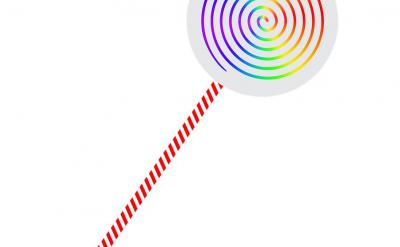中考英语交际用语要点解析

篇1:中考英语交际用语要点解析
中考英语考点解析:日常交际用语第二部分
高频考向八 提供帮助
①询问语:
Can/Could I help you?
Can/Could I do…for you?
What can I do for you?
Would you like some help?
Would you like me to do sth.for you?
Do you want me to…?
Is there anything (else) I can do (for you)?
Let me do…for you.
②应答语:
需要帮助
Yes,please.
Thanks.That's very kind/good/nice (of you).
谢绝帮助
No,thanks/thank you,I can do it myself.
No,I can do it,but thank you all the same.
【例10】 -________ I help you,sir?
-Yes,I want a Tshirt.
A.Can B.Should C.Must D.Would
解析:由答语"是的,我想买一件T恤衫"可知,问句是商场购物用语:Can I help you?
答案:__A__
【例11】 -Is there anything else I can do for you?
-________.
A.Of course B.You're welcome
C.No,thanks D.That's OK
解析:拒绝某人帮助时应用"No,thanks"表示礼貌。
答案:_C___
高频考向九 就餐
①主人征求或建议对方吃什么:
Would you like something to eat/drink/have?
Would you like some more…?
Which do you prefer,rice or noodles?
What would you like to drink,tea or coffee?
②主人让客人随意吃喝自己喜欢的食物或饮料:
Help yourself/yourselves(to…)
客人的应答语:
I'd like….
Just a little,please.
Thank you.I've had enough.
I'm full,thank you.
It's delicious,but I can't eat any more.
【例12】 -Help yourself to some more meat,Linda.
-________.
A.I'm full,thanks B.It's my pleasure
C.It doesn't matter D.Very well,thanks
解析:就餐时,对于对方的盛情表示拒绝时可用"I'm full,thanks."意为"我吃饱了,谢谢。"
答案:__A__
高频考向十 请求允许
①Can/May/Could I…?我可不可以……?
表允许或同意
Yes./Sure./Certainly./Of course,you can/may.
Yes,do please./That's OK/all right.
Go ahead,please.
表不允许或不同意
No,please don't./I'm sorry you can't.
I'm sorry,but…./You'd better not….
②Would you mind my/me….?你介意我……吗?
表允许/不介意
No,I don't mind./Certainly not./Of course not./Not at all.
表不允许/介意
I'm sorry you can't…
I'm afraid….
I'm afraid it's not allowed.
【例13】 -Could I borrow your camera?
-________,but please give it back by Saturday.
A.I'm sorry B.Of course
C.Certainly not D.No,thanks
解析:由问句句意"我能借你的相机吗?"和答语中的"but please give it back by Saturday(但请在周六前还给我)"可知,是同意了别人的请求。
答案:__B__
【例14】 -Cindy,would you mind not opening the window?It's cold outside.
-________.
A.I'd like to B.Sorry,I'll do it right now
C.Yes,that sounds good D.No,I wouldn't
解析:句意"辛迪,不要开窗户,你介意吗?外面很冷。""________。"对于Would you mind...?问句,常回答"Not at all"(根本不,一点也不)表达不介意,也可用"Of course not"或"Certainly not"来回答;或回答"Sorry,I'll do it right now"(对不起,我马上去做)。
答案:__B__
高频考向十一 谚语、格言与常识
1.谚语
Love me,love my dog.爱屋及乌。
Two heads are better than one.三个臭皮匠,顶个诸葛亮。
2.格言
No pains,no gains.一分耕耘,一分收获。
Where there is a will,there is a way.有志者,事竟成。
3.常见的标志和说明
BUSINESS HOURS营业时间
OFFICE HOURS办公时间
OPEN/CLOSED营业/关门
PULL/PUSH推/拉
NO SMOKING/PHOTOS/PARKING请勿吸烟/请勿拍照/请勿停车
DANGER!危险!
ON/OFF开/关
PLAY/STOP/PAUSE播放/关闭/暂停
ENTRANCE/EXIT入口/出口
SHUT此门不通
NO ADMITTANCE闲人免进
MEN'S (GENTLEMEN'S)男厕所
WOMEN'S(LADIES')女厕所
OCCUPIED/VACANT(厕所)有人/无人
SOS紧急求救信号
EMS(邮政)特快专递
【例15】 -A homeless man won a lottery ticket.He became rich overnight.
-________.
A.Better safe than sorry
B.The early bird catches the worm
C.Every dog has its day
D.Too many cooks spoil the broth
解析:A选项"谨言慎行不吃亏,轻率莽撞必后悔";B选项"早起的鸟儿有虫吃,捷足者可先得";C选项"凡人皆有得意日";D选项"人多反误事"。
答案:__C__
一、单项选择。
1.-We can invite Nick and Nora to Shanghai Disneyland with us.
-____?I'll give them a call right now.
A.Why not B.What for C.Why D.What
2.-Thank you for supporting the volunteer project.
-____.
A.All right B.My pleasure
C.Never mind D.It doesn't matter
3.-Will you carry the box for me,please?
-Sure,____.
A.no good B.no problem
C.no idea D.no way
4.-Thank you for helping me with my physics.
-____.I hope you can do better in it.
A.Good idea B.See you
C.I'm not sure D.You're welcome
5.-Shall we go to Alberta for the summer holiday?
-____.It's one of the world's cleanest cities.
A.Sounds great B.Not at all
C.You're kidding D.You're welcome
6.-Is your sleeping problem getting better?
-No.And ____.They gave me the wrong medicine this time.Can you believe that?
A.a good miss is as good as a mile
B.it never rains but it pours
C.the early bird catches the worm
D.every dog has its day
7.-You don't look well,Daniel?You'd better see a doctor.
-____.but he said there's nothing wrong.
A.Yes,I will B.Yes,I did
C.No,I won't D.Sorry,it doesn't matter
8.-John,thank you for driving me home.
-____.See you tomorrow.
A.That's right B.I'm afraid not
C.You're welcome D.It's a good idea
9.-I'm going on vacation this weekend.
-____!
A.The same to you B.Have a good time
C.Hurry up D.Hold on,please
10.-I'm going to Mary's birthday party.Bye,mom.
-____,David!
A.Best wishes B.Have fun
C.Take care D.No problem
11.-Are you sure you can do well in today's test,Frank?
-____ I've got everything ready.
A.It's hard to say B.I think so
C.I'm afraid not D.I hope not
12.-Could you please sweep the floor?I'm going to cook dinner.____
A.I'm afraid not. B.You're kidding.
C.It's a shame. D.My pleasure.
13.-My robot has caught a virus and it has gone wrong.
-____You'd better have it checked.
A.Don't mention it. B.No problem.
C.I'm sorry to hear that. D.That's OK.
14.-The radio says it will rain next Sunday.
-____We are going for a picnic that day.
A.I hope it will. B.I'm afraid not.
C.I don't think so. D.I hope not.
15.-How do you like this house?
-____.It's everything I've been looking for.
A.Terrible! B.Perfect!
C.Awful! D.Delicious!
答案:
名题实战
1-5:BDADC
单项选择
1-5:ABBDA
6-10:BBCBB
11-15:BDCBD
篇2:中考英语交际用语要点解析
劝告和建议(Advice and suggestion)
(1)You'd better (not)do sth 你最好(不)干。
You should do sth. 你应该干。
You need(to)do sth. 你需要干。
(2)Why don't you do sth? 为什么不。
Why not do sth? 为什么不。这是以反问的方式提出劝告或建议,含有建议对方去干某事的意思,而不是询问对方为何不去干某事的原因。
(3)What/How about +名词或动名词? 这种句型表达随便的建议,有征求对方意见的意思,多数情况下是建议和对方一起做某事。
(4)"Shall we?"这种句型用于建议对方与自己一起做什么,是一种普通的表示建议的方法。它和"Let's,shall we?"句型可以互换,在回答时,如果赞成这个建议,常用"Yes, let's."或"OK. let's."
(5)用suggest作谓语的陈述句
这种句子用于表达比较正式的建议,在会议上和讨论中使用较多,也常用于书面形式,后面常跟名词、动名词或that从句作宾语。注意跟从句时,从句中动词用动词原形式should+动词原形。
(6)用Let's开头的祈使句
这是最普通的表达建议的方法,建议对方和自己一起做什么.let's后接动词原形。若句尾加上"shall we?", "OK?"等用于征求对方法的词语,从而使语气委婉得多。
注意:对对方的建议表示同意时常用的答语为:
Great太好了。That's a good idea.真是个好主意。对对方的建议表示不同意,或根本不能满足对方的要求而表示歉意时的常用答语为:
I'm afraid that 我担心,我恐怕。
I'm afraid not. 恐拍不行。
(7)用should,ought to等情态动词来表示“劝告”
(8)用动词advise,名词advice表示劝告。

篇3:中考英语交际用语要点解析
关心和焦虑的交际用语
1、What‘s wrong/the matter(with)...?表示的意思是“你怎么啦?”、“你有什么不舒服?”、“出了什么毛病?”,用来询问对方的疾病、痛苦、忧伤、事故等情况,。句中的wrong作“失常的”、“状况不佳的”,matter作“麻烦事”、“毛病”、“故障,指病痛或事故的原因。”
What‘s wrong with...和What’s the matter with...?两个句子意思相同,可以互换。
2、Is there anything the matter?意思是“出了什么事吗?”、“有什么毛病吗”这个句子还可以简化为:anything the matter?
3、We are anxious/worried about...“be anxious/worried about”意思是“为(某人/某事)担心”,可用于各种时态,其中的be可用get代替(即“get anxious /worried about”)
4、There is no need to be worried。没有必要担心。/ There is nothing to worry about。没有什么可以担心的。
对于别人的担心或焦虑,常可以用以上句子表示宽慰。
篇4:中考英语交际用语要点解析
谈论天气情况
1.It is raining /blowing /snowing ,(isn't it ?)下雨了/刮风了/下雪了,(对吗?)
It is +adj ./n.(today ). 今天的天气这类句子都是用来发表对天气的看法的。
"It is +adv /n (today )"中间可用表述天气情况的形容词或名词,应答时可说:Yes ,it is .
2.What's the weather like today ? 今天天气怎样?
What's the weather going to be like ? 天气将怎样?
这两个句型都是用来询问天气情况的。前者询问当天的天气后者询问未来的天气,在like 后加表示未来的时间状语(如tomorrow .the day after tomorrow )应答时可说:
It's fine /warm /cold /hot 或It's going to be fine /warm/cold /hot
"What's the weather like?"
也可以用"How is the weather?"表达,其意思想同。

篇5:中考英语交际用语要点解析
祝愿、祝贺及应答
(Good wishes, congratulations and responses)
1)当某人取得成功时
I have passed the examination! 我已经通过考试了。
Congratulations(to you)祝贺你!
2)当某人外出旅行时
Good luck with your trip! 祝您们旅途平安!
Have a good trip/journey.=I wish you a good trip/journey.祝你旅途愉快。祝你一路顺风。
Good trip to you./Nice journey to you.祝你旅途愉快
Have a nice/pleasant/wonderful time.=I wish you a nice/pleasant/wonderful time.祝你过得愉快。祝你玩得痛快。
3.)当某人生日时
A: Happy birthday to you;生日快乐!B: Thank you!谢谢!
4)当某人即将做某事时
A:I will take the exams tomorrow.我明天将参加考试。
B: Good luck (to you)!(I wish you success!)祝您顺利!(祝您成功!)
注:上述几点中祝愿(贺)的回答可用。 Thanks./thank you/thanks a lot.或It's kind of you to say so.谢谢. /多谢. /谢谢您./谢谢你这么说。
5)在公共节日里
A: Happy New Year(to you)! 新年快乐!
B: Thanks. The same to you!(Happy New Year to you, too!)谢谢!您也一样!(也祝您新年快乐!)
篇6:中考英语交际用语要点解析
请求允许和应答
(Asking for permission and responses)
1) Can I/Could I/May I...? 我可不可以?
这个是请求对方允许自己做某事的最普通的交际用语,其中could I?语气最婉转;May I? 常用在比较正式的场合;Can I? 用得最广泛。
对于所提出的请求表示允许或同意时,可说:
Yes./Sure./Certainly.当然可以。
Of course, you may.当然可以。
Yes, do please.请吧。
Go ahead, please.请吧。
That's Ok./all right.好的。
对于所提出的请求表示不允许或不同意时,可说:
No, pleased don't.请不要。
I'm sorry you can't.对不起,你不可以
I'm sorry, but对不起,但是。
You'd better not你最好别。
2.Do you mind if I do...?
这是用来表示“请求许可”的交际用语。句中的mind作“介意”、“反对”解。整句的意思是“如果我干某事,你反对/介意吗?”或“我干某事,”好吗?注意:当我们用“Do you mind if”时,if从句中的谓语动词一般用现在时;当我们用“Would you mind if”时,if从句中的谓语动词一般用过去时,这时语气更加婉转。应答时,如果表示“允许/不介意”,常说:
No, I don't mind. 我不介意/我允许。
Certainly not / Of course not. 当然不介意。
No, go ahead. 不介意,你干吧。
Not at all. 一点也不介意。
如果表示“不允许/介意”时,常说:
I'm sorry you can't很抱歉,你不能。
I'm afraid.恐怕.
I'm afraid it's not allowed. 恐怕这是不允许的。
3. I wonder if I could/can...? 我想知道我能否?
这也是用来表示“请求许可”的交际用语。句中的wonder作“想知道”解,后面常跟if从句。整个句子的意思是“我想知道我是否可以?”用以委婉地提出请求。应答时,如果允许,常说:
Sure, go ahead./Yes, please do.可以,请吧。
Yes./Of course./Certainly. 当然可以。
如果不允许,可以说:
I'm sorry, but 对不起,
I'm afraid not. 恐怕不行。
No, please don't. 请不要。
You'd better not 你最好别。

篇7:中考英语交际用语要点解析
提供帮助和应答(Offers and responses)
Can/ could/ Shall I help you (with that)? 我可以帮你吗?
Can/ Could/ Shall I dofor you? 我可以帮你干吗?
What can I do for you? 我能为你做什么?
Would you like some/any help? 你要不要什么帮助?
Would you like me to do sth. for you ? 你要不要什么帮助?
Would you like me to do sth. for you ? 你要不要我为你干 ?
Do you want me to ? 你要我干吗?
Is there anything (else) I can do (for you)? 还有什么(别的事)我可以为你效劳吗?
Let me dofor you. 让我来帮你干吧。
应答时,不管你需不需要对方的帮助,首先得表示感谢。
Thank you./ Thanks a lot/ Thank you very much. 谢谢。
Yes, please./ Thanks, please. 好的,谢谢。
Thank you for your help. 谢谢你的帮助。
如果需要帮助可以说:
Thanks. That's very kind /good / nice (of you). 谢谢,那太好了。
如果谢绝帮助,可以说:
No, thanks. I can manage it myself.谢谢,我自己可以对付。
No, thank you, but I can do it myself. 谢谢,我能行。
No, I can do it, but thank you all the same.我可以干,谢谢。
That's all right. thank you. 没什么,谢谢。
篇8:中考英语交际用语要点解析
表示禁止和警告的交际用语
1、Look out! /Be careful! / Take care!
这三个句子都作“当心、小心”解,look out语气最强,往往用于某种紧急的情况或可能出现危险的场合,其后接for短语。take care语气没有那样强,多用于对可能出现的不测作出预先的提醒或警告,其后可接不定式短语或that从句,从句的谓语动词用一般现在时。be careful可代替look out和take care,其后也可接不定式以及about, with等介词短语。
2、下列句型也可用来表示警告:
Don‘t do sth...or...不要干某事,否则...If you...you’ll...如果你。。。,你就会。。。
3、以否定祈使句或“No+-ing”表示禁止和警告。
Don‘t smoke! 不准抽烟!/ Don’t be late!不要迟到! / Don‘t take pictures here! 不要在此拍照! / No smoking!不准抽烟!/ No parking!不准停车! / No spitting! 不要随地吐痰!
4、用can‘t / mustn’t表示禁止和警告。
篇9:中考英语交际用语要点解析
看病时病交际用语
1)医生询问病情时的常用语
What can I do for you" 你看什么病?
What's wrong/the matter/ the trouble with you? 你有什么不舒服。
Is there anything wrong with you? 有什么看病吗?
(2)病人诉说病情时的常用语
I feel terrible/ bad/ ill sick. 我感到很不舒服。
I don't feel well. /I'm not feeling well.我感到不舒服。
I'm not in good health. 我身体不好。
There is something wrong with 我的有毛病。
I have / have got. 我觉得痛。
My back / nose hurts / aches. 我的背/鼻子痛。
(3)医生给病人检查时的常用语
(Lie down and )let me exam you. (躺下),让我检查一下。
Does it hurt here? 这儿痛吗?
(4)医生看完病后对病人提出医嘱时的常用语
It's nothing serious. 病不重。不要紧。
You'd better have a good rest. 你最好好好休息休息。
Take this medicine three times a day. 这药每天吃三次。
Drink plenty of water and have a good rest. 多喝水,好好休息。
You have a high temperature. 你发烧了,/ 你体温高。
You'd better go to bed don't get up until you feel Better. 你最好躺在床上,感到好一点再起床。
Take 2 pills now and 2 more in 4 hours' time. 现在吃2片药,隔4小时再吃2片。
I advise you(not) to... 我劝你(别)
I suggest you 我建议你
You'll be well/ all right soon. 不久你会好的。



